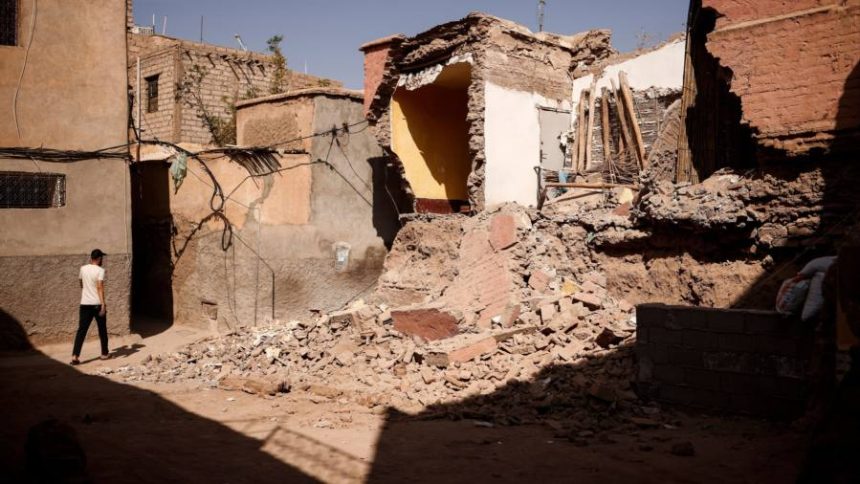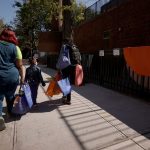Receive free Morocco updates
We’ll send you a myFT Daily Digest email rounding up the latest Morocco news every morning.
Hopes were fading on Tuesday of finding more survivors buried under buildings after a powerful earthquake hit Morocco on Friday, killing at least 2,800 people and destroying more than 31,000 homes.
The government said it would provide funding to households to rebuild their destroyed dwellings after Friday evening’s tremor devastated villages in the High Atlas mountains south of Marrakech, where homes were often built of mud brick that could not withstand the quake.
Prime Minister Aziz Akhannouch said in remarks published late on Monday that the priority was still to rescue more people from under the wreckage of their homes and to deliver food and other support to families affected by the 6.8-magnitude quake.
But Akhannouch said the state would begin assessing the number of homes that would need reconstruction and start mending roads cleared of debris and rockfalls from the quake.
His remarks followed complaints from some villagers of a lack of assistance, while the International Federation of Red Cross and Red Crescent Societies (IFRC) warned that a “second wave of disaster” could follow the destruction wrought by the earthquake.
The government would announce as early as this week details of “the reconstruction and construction of everything that was broken by the earthquake”, Akhannouch said.
Hundreds of damaged schools would be rebuilt, and work would begin to resume state services such as health provision and water supplies, he said, adding: “There will be financial support for citizens to rebuild.”
Abdelouafi Laftit, interior minister, said 31,000 homes had been destroyed and that figure was likely to rise.
Government teams were working to restore electricity and mobile phone signals on Tuesday, while others were distributing tents to those who had lost their homes or feared cracked houses would collapse.
The IFRC launched an emergency appeal to raise SFr100mn ($112mn) to support victims, intended to cover the most urgent needs such as water, sanitation and shelter.
Caroline Holt, global director for operations at the IFRC, said: “We need to make sure to avoid a second wave of disaster . . . This emergency response, as with many earthquakes, is a marathon. The people affected by the earthquake will need support for the weeks and months to come.”
The earthquake’s epicentre was in the Atlas Mountains 72km south-west of Marrakech, Morocco’s most visited tourist destination. The city suffered some damage, but the worst of the destruction hit mountain villages that were difficult to reach.
In Marrakech, some buildings in the old city, a Unesco World Heritage Site, collapsed, while a section of the medieval wall surrounding the city was cracked. But on Tuesday tourists could be seen on the streets and restaurants were open.
Morocco is keen that annual meetings of the IMF and World Bank due to be held in Marrakech in October should go ahead, said a person close to the Moroccan government.
“The IMF/World Bank would not want to abandon a country in distress. It would be a show of solidarity,” said the person.
The IMF said: “Our sole focus at this time is on the people of Morocco and the authorities who are dealing with this tragedy.”
Read the full article here




